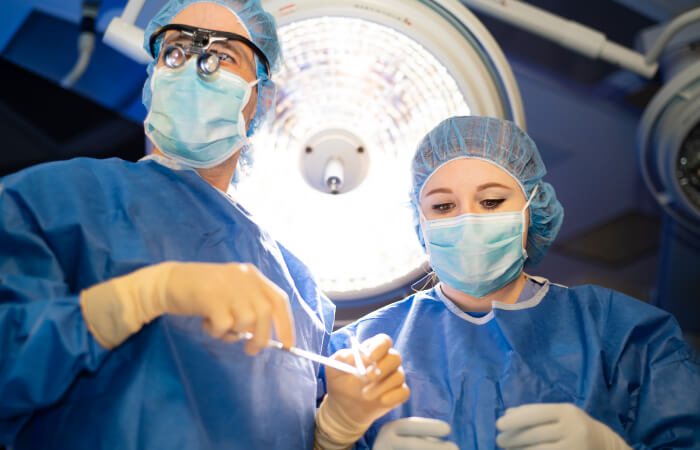Advanced Surgical Services
Surgical services at HSHS Good Shepherd Hospital accommodates a wide variety of outpatient procedures.

Surgery is typically never the first option. When it is the best option, we sincerely hope you will choose HSHS Good Shepherd Hospital, where our surgeons perform the latest advanced techniques so that you don’t have to have a lengthy hospital stay, a large and painful incision – resulting in a sizable scar – and weeks of rest and recuperation.
Today, thanks to advances in technology and specialized training, doctors at HSHS Good Shepherd Hospital can perform a wide variety of surgeries using minimally invasive techniques. These surgeries are often less risky for patients and result in less pain and scarring. Most important, people can usually return to their regular routines in a matter of days.
Speak with your primary care provider to schedule your surgery at HSHS Good Shepherd Hospital
About the Surgery Center
A colonoscopy is an exam used to detect changes or abnormalities in the large intestine (colon) and rectum. During a colonoscopy, a long, flexible tube is inserted into the rectum. A tiny video camera at the tip of the tube allows the doctor to view the inside of the entire colon. If necessary, polyps or other types of abnormal tissue can be removed through the scope during a colonoscopy. Tissue samples (biopsies) can be taken during a colonoscopy as well.
Talk to your primary care provider to schedule your colonscopy at HSHS Good Shepherd Hospital.